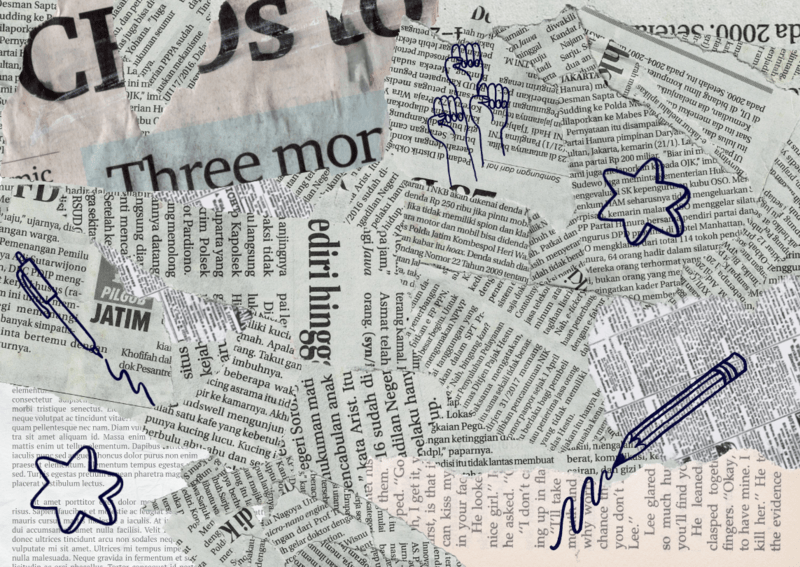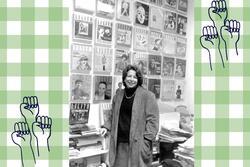The Future of Judaism in Journalism
I have always cherished the numerous and varying pastimes I share with my dad. But from around age twelve, a frontrunner emerged: watching investigative journalism dramas. I became obsessed with movies like All the President's Men, The Insider, and later, The Post. I took any chance I could get to ask obnoxiously rhetorical questions, simply in hopes of others engaging with me on the topic of Watergate, the Pentagon Papers, or “Big Tobacco.” I was infatuated by Bob Woodward's investigative work and his relationship with his secret informant, Deep Throat (a name which I casually threw around for years, oblivious to its reference).
These intense, dynamic, and nuanced films taught me about everything from freedom of speech and propaganda, to government corruption and the influence that the press has on U.S. public opinion. I have found it easy to take for granted where I am getting my news. It feels pretty automatic to internalize and form opinions based on the latest article in my feed. But films like these helped me pay more attention to my news source and its point of view: who is writing this? How could their circumstances influence the validity of this information? What is being said? What is not being said?
The latter question I wrestle with the most.
When I look at my American Jewish identity, I find that happenings in the Jewish community, and in particular, the Jewish feminist movement, continue to be underrepresented and under-publicized. Media regarding Judaism is dominated by the latest cases of national antisemitism and anti-Jewish hate. On March 2, 2023, Ben Lober published in Jewish Currents an article entitled “Who Benefits When Jews Are Afraid?” He writes, “In the lead-up to the recent Day of Hate, national Jewish defense organizations—along with media and law enforcement—played right into white supremacists’ strategy.”
What Lober went on to write resonated with me. The rhetoric regarding antisemitism from the people, institutions, and organizations working to combat it has always evoked more disarming fear than uplifting feelings of solidarity and safety. Crisis rhetoric in news articles, especially during times of climate change, global conflict, and hateful sentiment, is often employed but rarely examined.
How can we shift the way contemporary Judaism is written about?
Jewish Currents has played a huge role in shifting news discourse around Judaism. In 1946, the magazine under its previous name, Jewish Life, was launched by members of the American Communist Party (CPUSA). The publication initially focused on “opposition to McCarthyism; advocacy for Black–Jewish solidarity in the anti-racist struggle; the promotion of Yiddish culture; and support for Israel’s founding from a non-Zionist, diaspora-oriented perspective.” The magazine's readership plummeted during the Second Red Scare and was later renamed Jewish Currents in 1958. In 2018, Jewish Currents experienced a massive rebranding and relaunch. Now, the magazine boasts over one million readers annually.
At the heart of the magazine’s resurgence is Arielle Angel, the 39-year-old editor-in-chief of Jewish Currents. In 2018, Angel helped spearhead a relaunch of the publication, after concern she had about younger generations expressing disinterest in their Jewish identities.
Angel’s articles range from topics relating to how Jews can engage in Palestinian solidarity work to the commodification of Holocaust stories to political art. Angel herself is an artist and her personal website boasts zines, comics, and posters that convey political resistance and Jewish liberation. By challenging convention, Angel is able to identify shortcomings in a movement that is dear to her, upcycling past efforts to reach new solutions. In refreshing a previously denounced magazine, Angel creates a community stoked by joy, exploration, and pride instead of fear. These foundational values of community are crucial to me and now, more than ever, feel hard to find when I come into Jewish affinity spaces. Angel’s articles and others published in Jewish Currents are filled with spunk, grit, and ruach—characteristics that I have personally found periodically lacking in the Jewish left.
I still think that Jewish-American magazines, including Jewish Currents, need to seek out more diverse writers and perspectives to explicitly center Jews of color, queer Jews, Jews with differing abilities, and especially, intersectional Jewish feminism. While the articles I regularly peruse in Jewish Currents offer a vast range of news and commentary, I have seen few covering feminist movements or figures that aim to amplify issues relating specifically to Jewish women. Organizations that boast progressivism and countercultural values must back up these claims through comprehensive inclusion, ingenuity, and truth. Most importantly, these efforts must be l'dor v'dor—from generation to generation. Just like my dad, who imbued me with a passion for journalism, media consumption, and the evolution of the American press, Jewish Currents continues to reshape Jewish news and inspires others to join in fervent solidarity.
This piece was written as part of JWA’s Rising Voices Fellowship.







